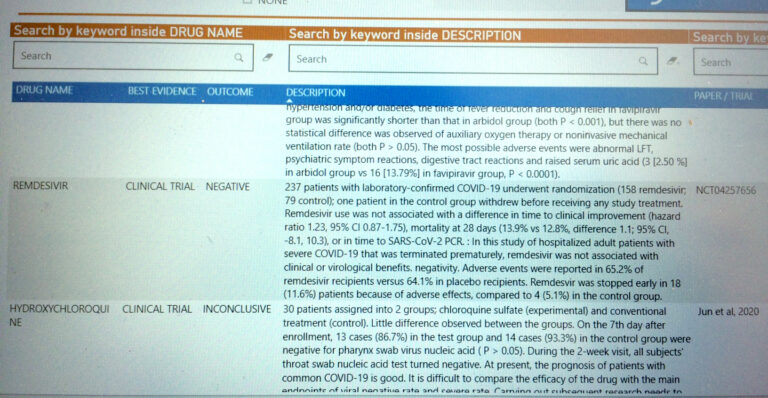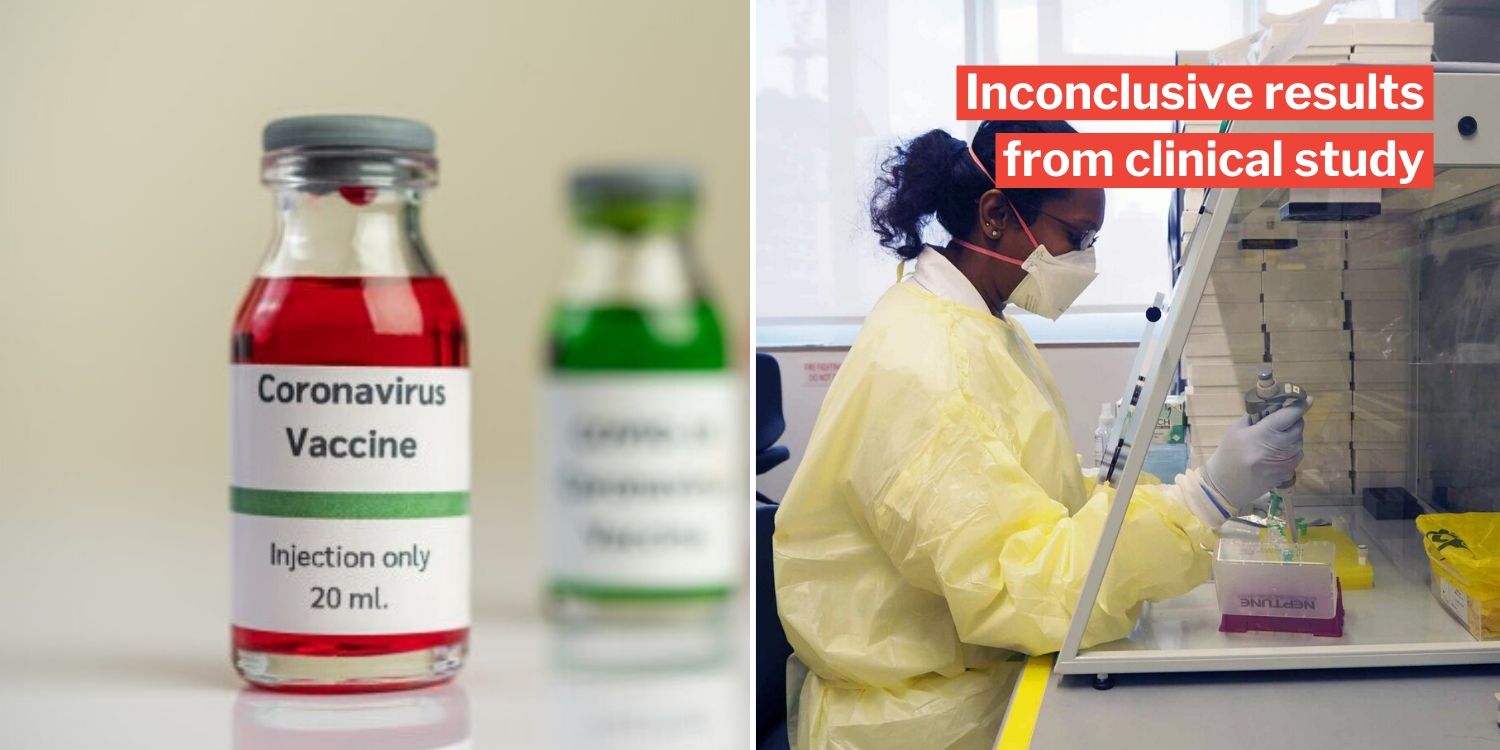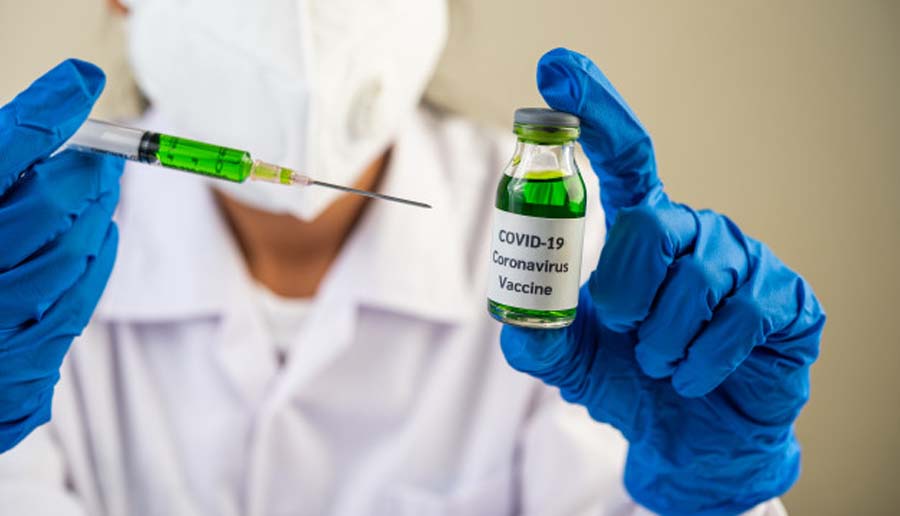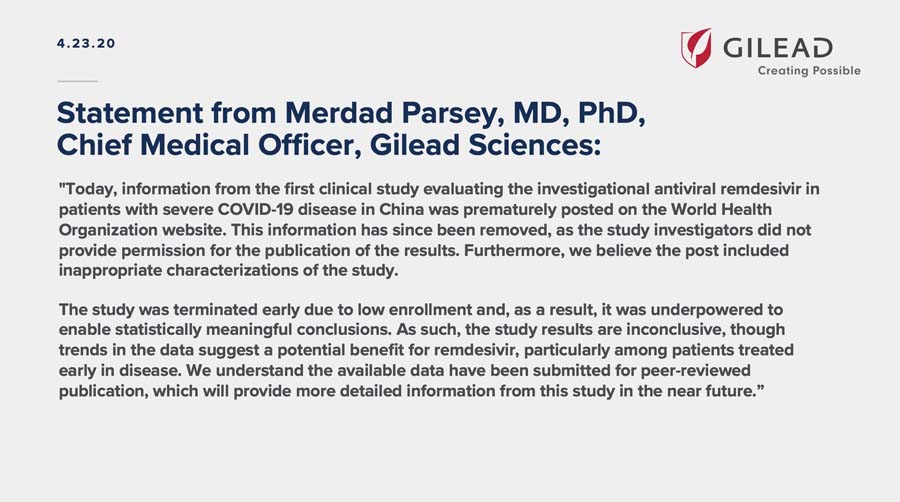Study On Remdesivir Has Inconclusive Results, According To Draft Manuscript Prematurely Published By WHO
We’re all desperate for a vaccine to cure Covid-19, thereby ending the outbreak and giving us back our normal lives, but unfortunately this could take some time yet.
An antiviral medication that many had hoped would treat the coronavirus that causes Covid-19 has flopped in its first trial.
And in a bizarre incident, the disappointing news was leaked online by the World Health Organisation (WHO), before being quickly taken down.
So while a vaccine may not be coming soon, here’s what you need to know about the potential Covid-19 drug.
Drug called Remdesivir shows promising results with coronaviruses
Past tests performed on animals showed a drug called Remdesivir could treat coronaviruses that are similar to the novel coronavirus that leads to Covid-19.
In fact, it was reported by news agency CNN that Covid-19 patients who were given the drug had recovered fast.
Thus, Gilead Sciences, the US biopharmaceutical company that manufactures the drug, conducted a study headed by Chinese pulmonologist Bin Cao from Beijing, according to Bloomberg.
His team started the trials in China on 6 Feb because the number of coronavirus cases was rapidly increasing in the country.
Study faced many setbacks
However, the study was riddled with setbacks.
According to a leaked abstract of the study seen by STAT, it aimed to enrol 453 patients for statistically significant results.
However, stringent lockdowns and a dwindling number of patients meant not enough of them could be found.
On the 237 randomised Covid-19 patients that it manged to get, 158 patients received Remdesivir and 79 patients got a control drug.
However, treatment was stopped early in 18 patients due to side effects, reported Agence France-Presse.
Then, by 30 Mar, the study was scrapped as the sample size wasn’t big enough, making the likelihood of getting inconclusive results higher.
Moreover, as there was no full manuscript, the results were unclear and the data was not reviewed.
Results not conclusive
However, the results that were obtained before the study was scrapped were certainly inconclusive.
After a month, 13.9% of the patients who were given Remdesivir died.
Remarkably, among the patients who were given the control, fewer of them died — 12.8%.
This difference isn’t significant statistically, though, said STAT.
The website also quoted the leaked abstract as saying that “remdesivir was not associated with clinical or virological benefits” in this study.
WHO publishes news prematurely
As if the aborted study and its inconclusive results weren’t amazing enough, a draft manuscript that was sent by Gilead to the WHO was published on its website prematurely.

A screenshot of the release on the WHO website before it was taken down
Source
It was quickly taken down once the error was noted, the WHO said.
Gilead defends research, says drug has potential benefit
Following the leak, Gilead released a statement on its website, defending the study.
The release, which quotes Gilead’s chief medical officer Merdad Parsey, said that the information on the clinical study was published on the WHO website without the researchers’ consent, and had “inappropriate characterisations”.
Dr Parsey clarified that the study could not make “statistically meaningful conclusions” because it had too few patients.
However, the data showed that the drug has a “potential benefit” for some patients who are treated early. The data must undergo peer evaluation first, though.
Here is part of the statement, as posted on Twitter. The full statement is on Gilead’s website.
More trials are underway
Although the study in China showed inconclusive results, the scientific community is relentlessly looking for a cure for the coronavirus.
According to Gilead’s statement, multiple studies are underway to investigate the drug’s potential.
Dr Parsey also highlighted the purpose of these trials, writing,
These studies will help inform whom to treat, when to treat and how long to treat with remdesivir.
Hunt for a cure still ongoing
The many setbacks faced by just one trial in finding a cure illustrate how difficult it is to find a solution to the Covid-19 crisis.
Undeterred, many scientists across the globe are holding different clinical trials to find a treatment soon. We sincerely appreciate their efforts.
Though we’re desperate for a vaccine, we’re also prepared to wait till they get it right.
Here’s hoping the cure will emerge ASAP!
Featured image adapted from Freepik and Facebook.












